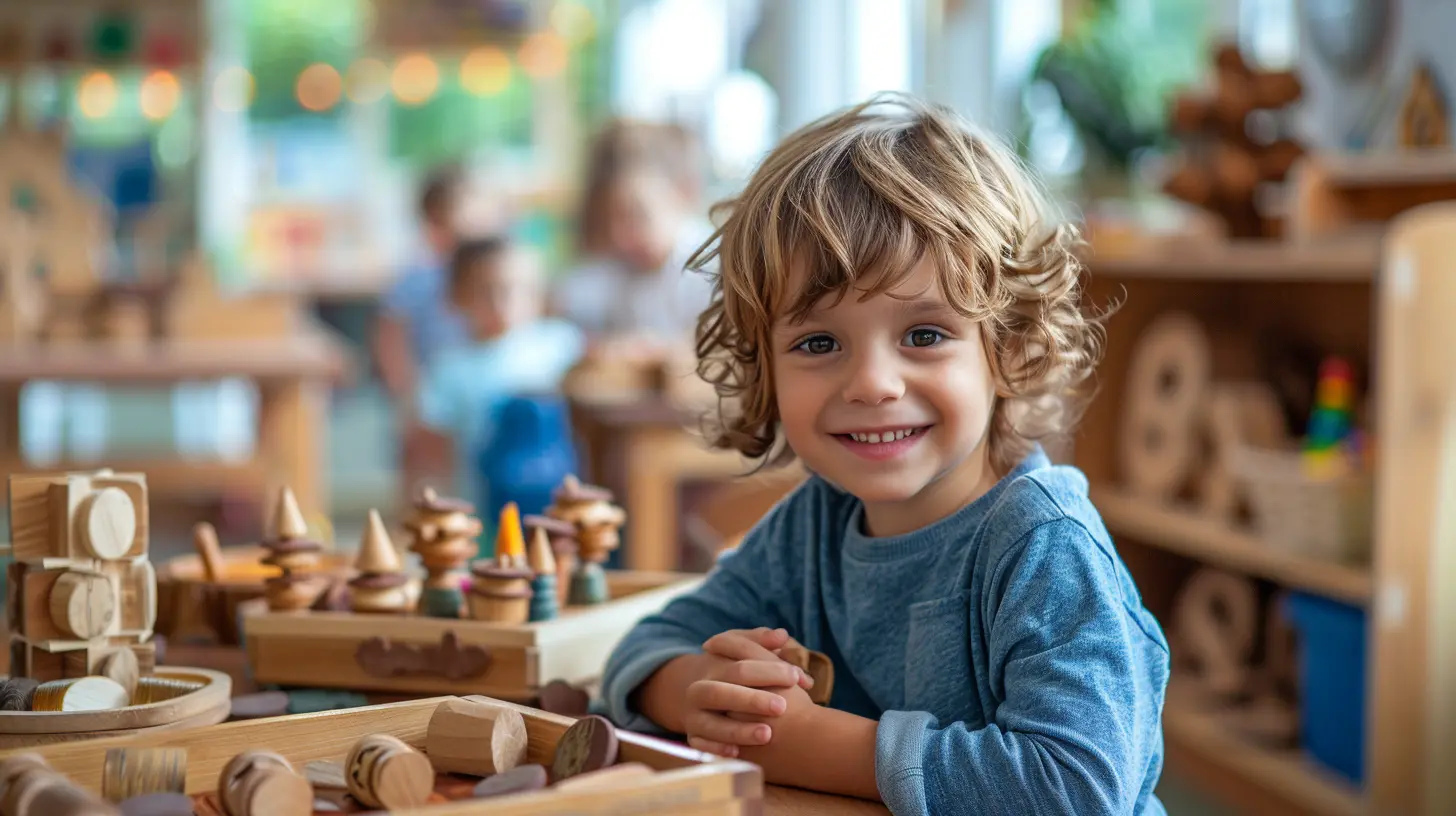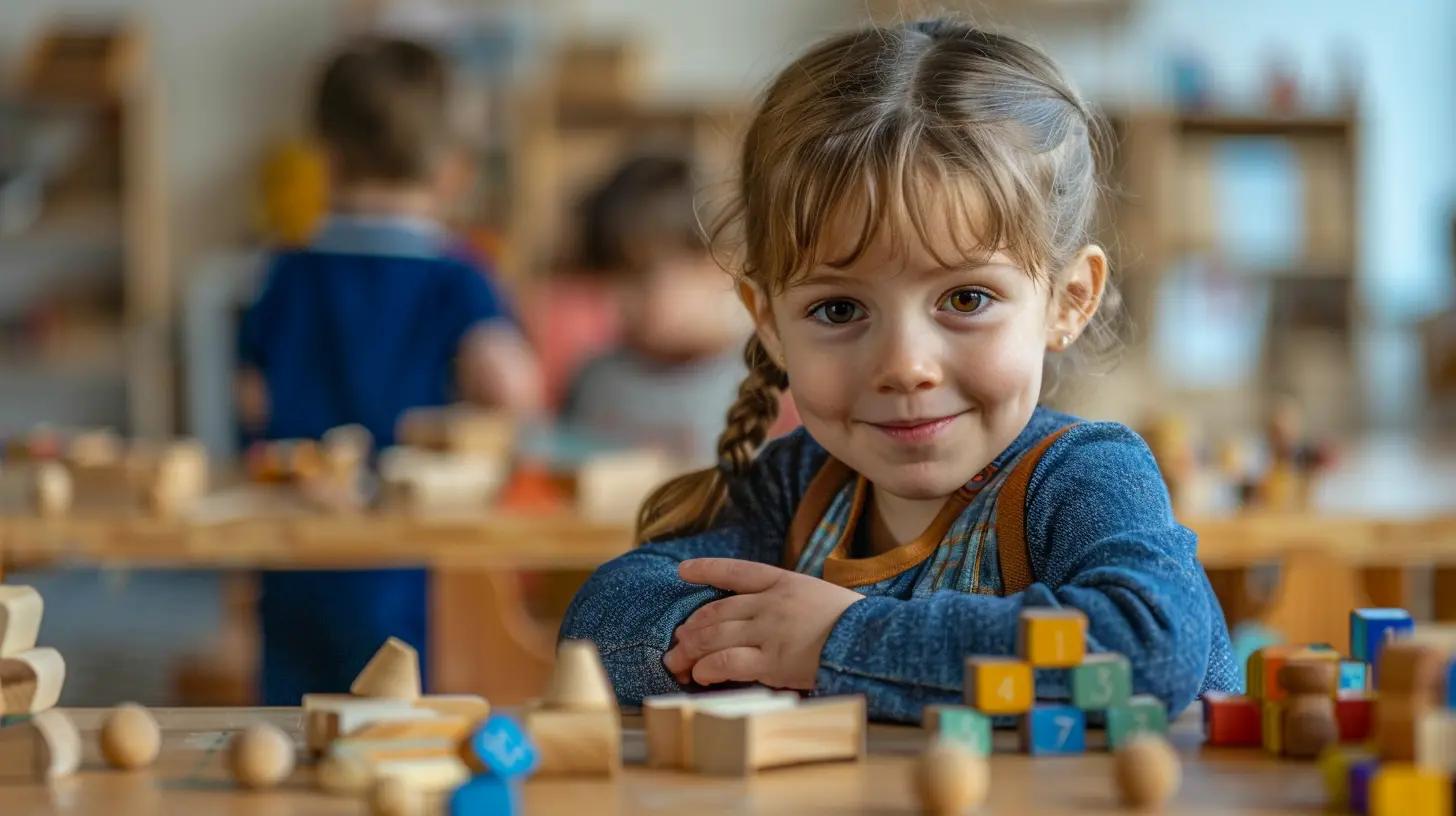23 August 2025
When it comes to raising well-rounded children, education plays a crucial role. But traditional schooling often focuses too much on test scores and rigid curriculums, leaving little room for personal growth. This is where Montessori education stands out—it's not just about academics; it's about nurturing the whole child.
But how exactly does Montessori education support holistic child development? And why do so many parents swear by it? Let's dive into the mystery behind this unique approach to learning. 
What Is Montessori Education?
Montessori education is more than just a teaching method—it's a philosophy. Developed by Dr. Maria Montessori in the early 1900s, this approach emphasizes independence, creativity, and hands-on learning. Unlike traditional schooling, where teachers lead the lesson, Montessori classrooms allow children to explore subjects at their own pace.Instead of sitting through endless lectures, kids engage in real-world activities that build skills beyond academics. Think of it like learning to swim—you wouldn't just read about swimming in a textbook. You'd jump into the water, practice, and refine your strokes. Montessori learning works the same way—it’s all about experience.
But how does this translate into holistic child development? Let’s break it down. 
The Core Principles of Montessori Education
Montessori isn’t just about letting kids roam free—there’s a structure, guided by key principles. These principles are what foster holistic development in children.1. Child-Centered Learning
In a Montessori classroom, children aren't forced into a one-size-fits-all education system. Instead, they choose activities based on their own interests. This boosts motivation and engagement, making learning a natural and enjoyable process.2. Hands-On Experience
Forget rote memorization. Montessori kids learn by doing. Whether it's counting beads to understand math concepts or gardening to explore science, hands-on experiences make learning more meaningful—and memorable.3. Freedom Within Limits
Montessori classrooms offer kids the freedom to choose their activities, but within a well-structured environment. This balance teaches responsibility, self-discipline, and decision-making skills—essential qualities for real-life success.4. Mixed-Age Classrooms
Traditional classrooms group kids by age, but Montessori classes mix different age groups together. Younger children learn from older peers, and older kids develop leadership skills by mentoring younger ones. This setup mirrors real-world interactions, enhancing social growth.5. Focus on Intrinsic Motivation
Unlike traditional schools that rely on grades and rewards, Montessori education emphasizes self-motivation. Kids engage in activities because they’re genuinely interested, not because they fear punishment or desire a prize.
How Montessori Education Nurtures Holistic Development
Holistic child development means nurturing a child’s mind, body, and emotions—not just academic performance. Montessori education plays a huge role in shaping well-rounded individuals by focusing on these four key areas:1. Cognitive Development: Encouraging Critical Thinking
Montessori education develops sharp, analytical minds. Instead of memorizing facts, children explore concepts deeply, fostering problem-solving skills.For example, in math, instead of simply drilling addition problems, children use tangible objects (like bead chains or number rods) to understand how numbers work. This hands-on approach enhances logical thinking and comprehension.
By learning through discovery rather than passive instruction, Montessori kids develop strong reasoning skills—a crucial advantage in today’s rapidly changing world.
2. Emotional Growth: Fostering Confidence & Independence
How many adults struggle with self-doubt and insecurity? Now imagine if they had been raised with the confidence to trust their instincts and make decisions independently.Montessori helps children develop this confidence early. With self-directed learning, kids make choices, solve problems, and tackle challenges on their own. Small victories—whether it's mastering a puzzle or tying their own shoes—build self-esteem.
Instead of relying on external validation, Montessori kids develop an inner sense of accomplishment. They don't just chase grades; they chase mastery and personal growth.
3. Social Skills: Building Empathy & Cooperation
In traditional classrooms, competition often takes priority over collaboration. But in Montessori settings, cooperation is the norm.Since students work together in mixed-age classrooms, they naturally develop leadership, patience, and empathy. A five-year-old may help a three-year-old learn to pour water, strengthening both their social bonds and practical skills.
This environment fosters respect, kindness, and emotional intelligence—qualities just as important as academic achievements.
4. Physical Development: Refining Motor Skills
Montessori education doesn’t just focus on the brain; it incorporates movement into learning. Activities like pouring, sorting, and tracing letters strengthen fine motor skills, preparing children for tasks like writing and drawing.Outdoor play is also a significant part of Montessori learning. Whether it's climbing, balancing, or gardening, physical activities contribute to a child’s overall development, improving coordination and body awareness. 
Why Montessori Education Prepares Kids for Life
The Montessori method isn’t just about school—it’s about equipping children with life skills.In today's fast-paced world, adaptability is key. Montessori-educated children are better at handling change because they’ve been encouraged to think independently, solve problems, and trust their own abilities.
They're also emotionally resilient. Since they learn in a self-paced, pressure-free environment, they're less likely to develop anxiety around learning. Instead of fearing mistakes, they see them as opportunities to grow.
Most importantly, Montessori cultivates a love for learning. When education is enjoyable rather than stressful, kids develop a lifelong curiosity—something that extends far beyond the classroom.
Is Montessori Education Right for Your Child?
If you're looking for an education system that values creativity, independence, and emotional intelligence just as much as academics, Montessori might be the perfect fit.It’s not about producing kids who ace standardized tests—it’s about raising thinkers, problem-solvers, and compassionate human beings.
So, the real question is: Should education be about memorization or real-world learning? Should children be shaped into test-takers or well-rounded individuals?
Montessori education holds the answer.
Final Thoughts
Holistic child development isn't a buzzword—it’s a necessity. And Montessori education is one of the best ways to ensure children grow intellectually, emotionally, socially, and physically.It’s a system that respects childhood, encourages curiosity, and instills a lifelong love for learning. And in a world that’s constantly evolving, what could be more important than that?









Benjamin Baker
Empowers children through tailored, experiential learning.
February 19, 2026 at 4:48 AM